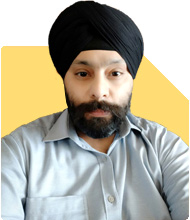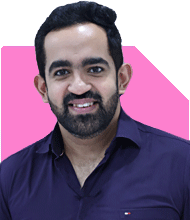Ramalingam Kalirajan |8093 Answers |Ask -Follow
Mutual Funds, Financial Planning Expert - Answered on May 08, 2024
He has an MBA in finance from the University of Madras and is a certified financial planner.
He is the director and chief financial planner at Holistic Investment, a Chennai-based firm that offers financial planning and wealth management advice.... more

I am 38 yrs old with 1lakh salary living in rented house, due to some family issue all my saving gone ,again i hv starting saving from this year through Sip of 1k in each companies ,BOI small cap, nippon india power&infra,quant small,motilal oswal midcap,icici prudential commodities ,icici bluechip ,kotak infra&economics reform,axis nifty IT ,icici pharma index , nippon small cap, quant elss , quant aboslute, bandhan sterling value fund, hdfc focus 30 ,nippon largecap, hdfc multi cap, quant flexi cap , mahindra small cap, prag parikh flexi cap, quant large cap, quant psu fund, sbi balanced advantage , aditya birla sunlife osu equity , sbi energy opportunities fund, ppf 8k. Whether i need to conssolidate or better to invest in all with this amount till 1 yr and then consolidate as i want to retire at the age 55yrs and how much corpus i need for retirement at 55yrs and what amount i need to save ,my monthly expense is 55-60k?? Please help!!
1. Review your portfolio: With a diversified portfolio of SIPs across various funds, it's essential to periodically review your investments' performance and their alignment with your financial goals.
2. Consolidation: Consider consolidating your SIPs into fewer funds to simplify your portfolio management and reduce administrative hassle. Choose funds that align with your risk tolerance, investment horizon, and financial objectives.
3. Retirement planning: To estimate your retirement corpus, calculate your expected annual expenses post-retirement and multiply it by the number of years you expect to live in retirement. Factor in inflation to determine the future value of expenses.
4. Savings target: Based on your retirement corpus requirement and the number of years left until retirement, calculate the monthly savings required to achieve your goal. Consider factors like inflation, investment returns, and any additional sources of income post-retirement.
5. Professional advice: Consult a certified financial planner (CFP) who can assess your financial situation comprehensively and provide personalized recommendations tailored to your goals and risk tolerance.
6. Emergency fund: Prioritize building an emergency fund equivalent to three to six months' worth of living expenses to cover unexpected financial setbacks.
7. Regular review: Periodically review your financial plan and make necessary adjustments based on changes in your financial situation, goals, and market conditions.
By consolidating your investments, setting clear retirement goals, and seeking professional guidance, you can work towards building a secure financial future.
Best Regards,
K. Ramalingam, MBA, CFP,
Chief Financial Planner,
www.holisticinvestment.in
You may like to see similar questions and answers below
Ramalingam Kalirajan |8093 Answers |Ask -Follow
Mutual Funds, Financial Planning Expert - Answered on May 08, 2024
Ramalingam Kalirajan |8093 Answers |Ask -Follow
Mutual Funds, Financial Planning Expert - Answered on May 08, 2024
Ramalingam Kalirajan |8093 Answers |Ask -Follow
Mutual Funds, Financial Planning Expert - Answered on May 02, 2024
Ramalingam Kalirajan |8093 Answers |Ask -Follow
Mutual Funds, Financial Planning Expert - Answered on Jun 18, 2024
Milind Vadjikar |1102 Answers |Ask -Follow
Insurance, Stocks, MF, PF Expert - Answered on Mar 12, 2025
Dr Dipankar Dutta |956 Answers |Ask -Follow
Tech Careers and Skill Development Expert - Answered on Mar 12, 2025
Radheshyam Zanwar |1412 Answers |Ask -Follow
MHT-CET, IIT-JEE, NEET-UG Expert - Answered on Mar 12, 2025
Radheshyam Zanwar |1412 Answers |Ask -Follow
MHT-CET, IIT-JEE, NEET-UG Expert - Answered on Mar 12, 2025
Inderpaul Singh |47 Answers |Ask -Follow
Leadership Coach - Answered on Mar 12, 2025
T S Khurana |398 Answers |Ask -Follow
Tax Expert - Answered on Mar 12, 2025
T S Khurana |398 Answers |Ask -Follow
Tax Expert - Answered on Mar 12, 2025
Rajesh Kumar Singh |192 Answers |Ask -Follow
IIT-JEE, GATE Expert - Answered on Mar 12, 2025
T S Khurana |398 Answers |Ask -Follow
Tax Expert - Answered on Mar 12, 2025
Aamish Dhingra |14 Answers |Ask -Follow
Life Coach - Answered on Mar 12, 2025



























